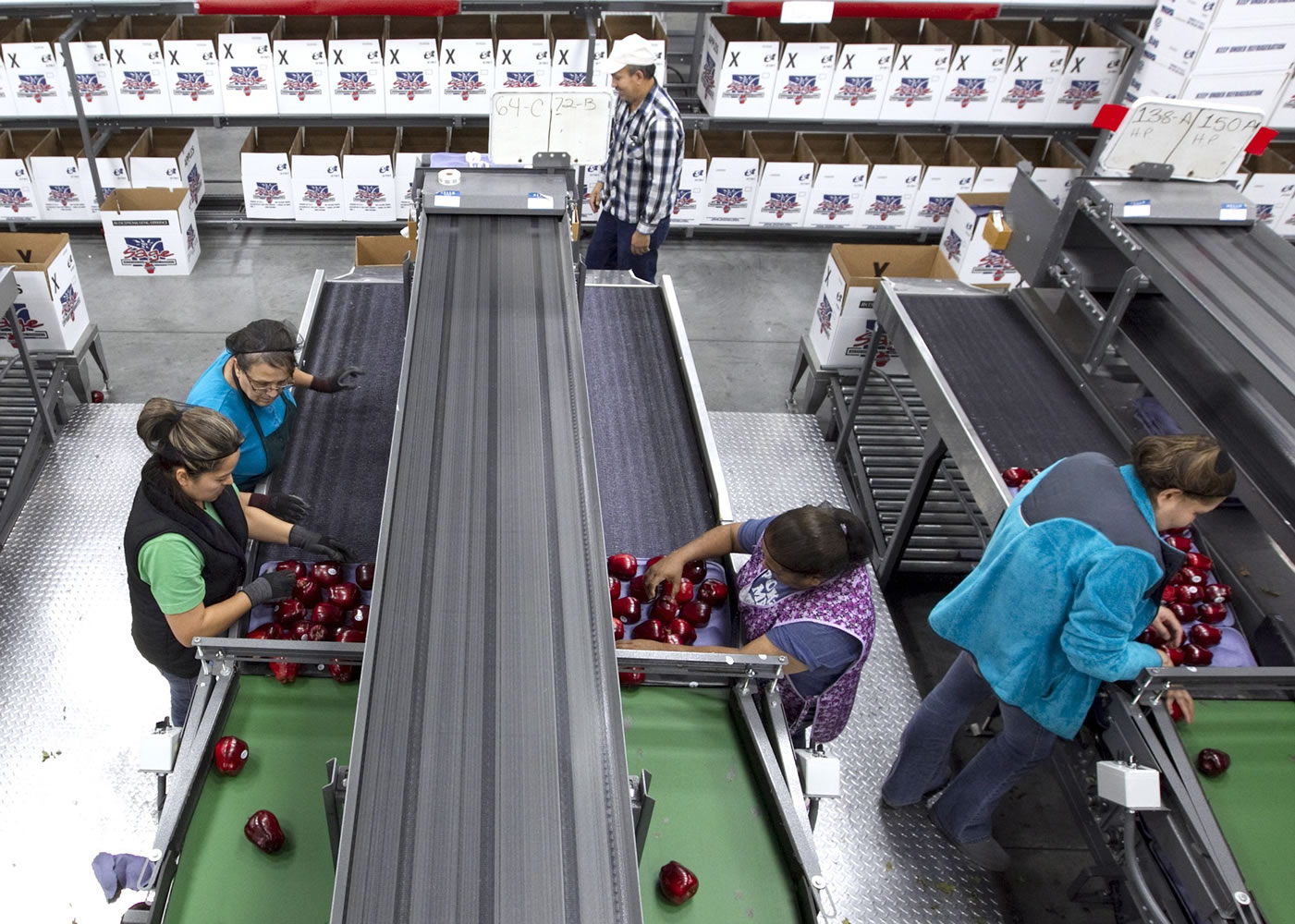YAKIMA — All the growth in the apple industry has created a demand for skilled technicians, though it has not yet boosted overall employment.
Even though packers are expanding facilities, building new lines and boxing up a record number of apples, the number of packing jobs has remained about steady over the past 10 years, according to state employment figures.
“That’s because of automation,” said Mike Gempler, executive director of the Washington Growers League in Yakima, which focuses on labor issues for the fruit industry.
Flush from record apple crops and strong markets, packing firms have invested in new lines that feature robotics and computer imaging, allowing them to pack more fruit with the same number of people.
Industry officials encourage young people to seek training for those jobs at places like Perry Technical Institute.
“In my opinion, it’s a pretty good career path for people,” Gempler said.
Replacing human labor with equipment is a constant in any industry, but the trend has surged in the past three or four years among Yakima Valley packing firms. Companies such as Allan Brothers and Valicoff Fruit have installed new lines through which apples zip at double, triple or quadruple the rate of the previous lines, which relied more on hand sorters.
Infrared scanners take hundreds of pictures per minute, evaluating the color, size and sugar content of apples both inside and out. That sophistication may require fewer hands, but those hands must be more skilled.
“That isn’t simply a camera you plug in,” said Miles Kohl, executive director of Allan Bros. in Naches. “You have to train that camera and software to do what you want it to do.”
While packing houses are hiring fewer packers and sorters, they are adding skilled technicians with training in programmable logic, Internet technology, refrigeration and mechanics.
Those jobs pay more, too.
While seasonal entry-level packers and sorters typically start at minimum wage, permanent technicians earn $35,000 to $50,000 per year across the industry. Mechanics who know not only how to fix the new machinery but integrate it with computers can command $50,000 to $75,000 per year.
“We’ve kind of got to be a lot more selective on those key roles,” said Brett Valicoff, president of Valicoff Fruit in Wapato, which started using a new apple line this year.
Demand for sorters has not disappeared, however. The chart may show a flat line so far, but it will pick up, industry officials predict.
Harvest work in the orchards still pays a little more than entry-level packing house tasks, roughly $1.70 per hour more, according to the state labor report from 2012, the most recent year available. And as crops get bigger, that will eventually leave holes in the warehouses, which could drive up wages, Kohl said.
Also, many-fruit packing companies are gearing up to add extra shifts, which will create more demand for sorters and packers.
Valicoff Fruit is among them. The firm plans to add a second shift within the next three years after a new controlled-atmosphere storage facility is operational, and will need about 80 more people to run it, Valicoff said.
China buying again
In related news, after a two-year market closure, China will once again buy Washington apples, starting immediately, according to U.S. agriculture officials.
The Washington Apple Commission made the announcement on Wednesday.
The Chinese government ceased imports in 2012 over concerns about a fungus. Officials from both nations negotiated for two years before reaching a deal.




